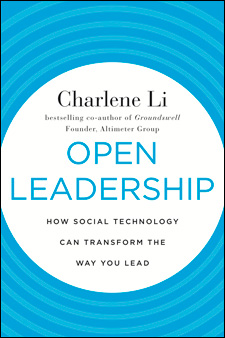Have you read “Eat, Pray, Love” by Elizabeth Gilbert? If so, did you love it or hate it or was it just “eh”?
Well, I have not read the book, but enough folks around me have shared their opinions about the book. I know of one woman who, after a few chapters into the book, absolutely loved the book. Others who have read the book, and mind you they were all women, were turned off by the author’s story – divorce leads to travel, food and love with a dose of whine.
Minus the divorce and travel it sounded a bit like “Julie & Julia” to me, which I enjoyed in the theater but never bothered to read the book…I did end up buying Julia Child’s French cooking tome but I digress.
The general consensus was that Gilbert’s book was a whiny memoir, but I came across this op-ed piece (via Scot McKnight at Jesus Creed) and had to ask all of you who have read the book or decided not to read it like I did based on the reviews.
Jessica Wakeman contends that:
“…Eat, Pray, Love the book (and soon, “Eat, Pray, Love” the movie, starring Julia Roberts and Javier Bardem) has turned out to be a lightening rod of controversy in the most disappointing of ways. The negative reactions to “Eat, Pray, Love” show just how resentful, bitter, contradictory, and quite frankly, hate-filled we are towards a woman who does something for herself.”
So far there are 401 customer reviews that rate the book 1 – star on Amazon out of more than 2,000 total reviews. I’m an author, but I’m not that kind of author – New York Times best seller kind of author, and I’d be lying if I said/wrote that I wouldn’t want to be that kind of author. NYT best seller? But with the fame comes the crap, and I’m not that good of a writer nor do I really want to deal with more crap. But it’s worth thinking about whether or not the criticism is, as Wakeman writes in her opinion piece, gendered and taking shots at Gilbert because she is a woman doing what Wakeman contends would have been an adventure story had a man lived the same life and written about.
There was similar criticism of the movie “Julie & Julia” – mostly but not exclusively from male movie reviewers. My thought at the time was that the movie critics were taking themselves too seriously and perhaps not understanding that this was the coming-of-age story for one almost-30 woman. Yes, Julie Powell was whiny, which is why she needed something else to ground her. Lucky for her, pounds and pounds of butter and bacon fat helped ground her, and she happened to gain some self-awareness and some success.
Is/was the criticism of “Eat, Pray, Love” or “Julie & Julia” gendered? Are readers (and are they predominantly women?) doing the same thing they accuse Gilbert of doing – whining and complaining – but about someone else’s success instead of about their own average lives? Or would the book even mattered had it been written about and by a man or would the publishers have looked at it and thought “this is nothing new”? Perhaps the issue of gender isn’t so cut and dry; isn’t it possible that a big reason this book made it is because Gilbert is a woman and leaving everything behind to find herself is a novel concept?
Now, I chose not to read the book. Instead I read several other books by non-white female authors because, quite frankly, I needed a different perspective, point of view and voice than what is so prevalent and prevailing. Gilbert is a woman, but the older I get the more frustrated I become with the false dichotomy of race and gender that I often experience. As Gilbert’s book became a rising star her star wasn’t in the same constellation as what I was seeking out – authors like Amy Tan, Bich Minh Nguyen, Yen Mah and Toni Morrison. So my reluctance to pick up her book was less gendered criticism and more cultural/racial and spiritual. I’m certain there are common bonds between all women, but I’m tired of people telling me the differences don’t matter. Differences make life complicated, interesting, compelling, frustrating and hard. I don’t want the same all the time, especially if someone else is the one always defining the “same”.
But I could be wrong about it all, so I may request the book at the library and revisit my reluctance. I’ll have to think about that some more. For those of you who read Gilbert’s book, what do you think?
 I grew up believing that taking advantage of the very best education money and hours of studying could get you was the key to the Asian American dream. There’s no doubt a strong education remains key but an Ivy League degree isn’t the only key. The world of social technology – the development and use of – is changing the way leadership and social power works.
I grew up believing that taking advantage of the very best education money and hours of studying could get you was the key to the Asian American dream. There’s no doubt a strong education remains key but an Ivy League degree isn’t the only key. The world of social technology – the development and use of – is changing the way leadership and social power works. Kathy Khang blogs at
Kathy Khang blogs at